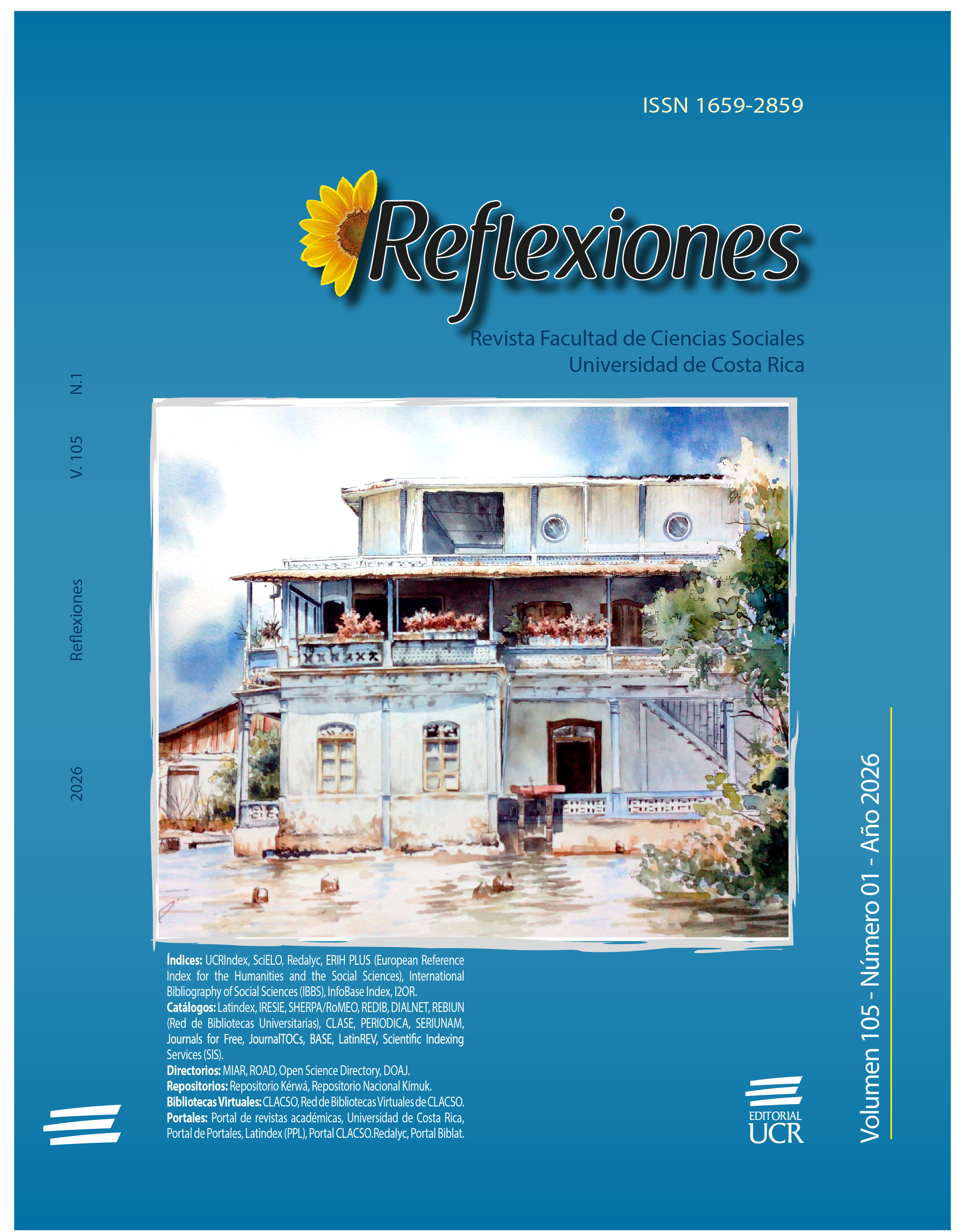Honduras: determinants of social exclusion during the neoliberal accumulation model
DOI:
https://doi.org/10.15517/f33wr440Keywords:
Social citizenship, Social inequality, State, Labor market, Binary logistic regressionAbstract
Introduction: The redefinition of the State as a consequence of the change in the accumulation model, modified its functions and allowed the deepening of social inequality in its extreme version: social exclusion.
Objective: To analyze the determinants of social exclusion in Honduras within the context of the neoliberal accumulation model (2006–2013), thereby exploring the relationship between social citizenship, labor market integration, and access to fundamental rights.
By adopting a relational and structural approach, this study seeks to capture the determinants of social exclusion in Honduras under the neoliberal accumulation model.
Methodology: Using descriptive and multivariate statistics and drawing on data from the Permanent Household Surveys and Multiple Purpose Surveys (EPHPM) conducted by the National Institute of Statistics of Honduras, a Social Exclusion Index was constructed. Additionally, three binary logistic regressions were estimated to identify the socioeconomic and sociodemographic characteristics of the excluded population.
Results: The findings reveal the persistence of large segments of the population living in conditions of social exclusion, lacking access to social security, educational credentials, and experiencing low-quality integration into the labor market.
Downloads
Downloads
Published
Issue
Section
License

This work is licensed under a Creative Commons Attribution-NonCommercial-NoDerivatives 4.0 International License.
Open Access Magazines Proposed Policy
The authors who publish in Reflexiones Journal agree with the following terms:
a. The authors preserve the article´s copyright and grant the journal its first publication. The work [SPECIFY PERIOD OF TIME] must be licensed after its publication under a:
a. The authors retain the copyright and grant to the journal the right of first publication, with the work [SPECIFY PERIOD OF TIME] as well as after publication is licensed under a Creative Common CC BY-NC-ND 4.0 DEED (Attribution-NonCommercial-NoDerivs 4.0 Internationa) that allows others to share the work with an acknowledgment of authorship of the work and initial publication in this journal.
b. The authors can separately establish additional agreements for the non-exclusive distribution of the published version (for example, place it in an institutional repository or publish it in a book), but, as stated above, with the recognition of its initial publication in this magazine.
c. Authors are allowed and encouraged to circulate their work electronically (for example, in institutional repositories or on their own website) before and during the submission process, as it can lead to productive exchanges, as well as an earlier and greater citation of their published works (See The Effect of Open Access).
d. Reflexiones Journal does not apply any fee or charge for the publishing process.
The authors who send their manuscripts to be evaluated by Reflexiones Journal, assign to it the publication rights for the article’s circulation in printed version or digital format. By being part of multiple indexers, databases and reference systems, the articles that are published by this journal will be available and downloaded from these websites, indicating, in all cases, the articles’ authorship, date of publication, and the number to which they correspond. All the documents published by Reflexiones can be downloaded on the journal’s website: https://revistas.ucr.ac.cr/index.php/reflexiones, and in all the databases where it is indexed.
The journal respects and follows all of the established by the Law No. 6683 Law on Copyright and Related Rights of the Republic of Costa Rica, as well as its reform in the 7979 Law.
Finally, Reflexiones applies in its publications the Creative Commons License, which can be consulted in the following link: https://creativecommons.org/licenses/by-nc-nd/4.0/deed.en





